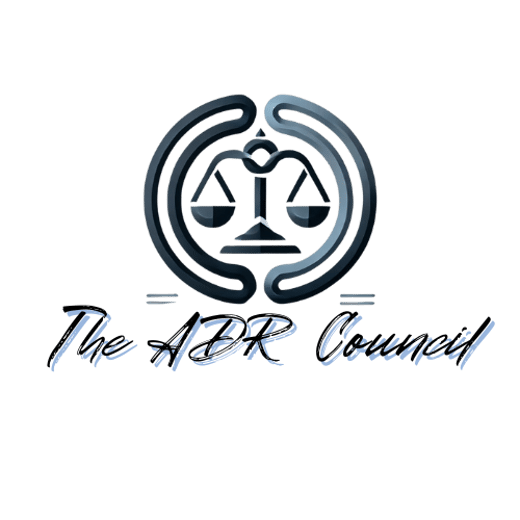What Is Alternative Dispute Resolution? A Beginner’s Guide
Introduction Conflicts and disputes are an inevitable part of life, whether in business, personal relationships, or legal matters. Traditionally, litigation has been the go-to method for resolving disputes, but it can be time-consuming, expensive, and adversarial. As a result, many individuals and organizations turn to Alternative Dispute Resolution (ADR) as a more efficient and less contentious way to handle conflicts. In this beginner’s guide, we will explore what ADR is, its key methods, benefits, and when it should be used. What Is Alternative Dispute Resolution (ADR)? Alternative Dispute Resolution (ADR) refers to a range of techniques and processes used to resolve disputes outside of the traditional court system. ADR methods are designed to be less formal, more cost-effective, and often faster than litigation. ADR can be used in various settings, including commercial disputes, workplace conflicts, family law cases, and community disagreements. The goal of ADR is to facilitate dialogue, foster cooperation, and find mutually acceptable solutions. Key Methods of ADR ADR encompasses several approaches, each suited to different types of disputes. The most common ADR methods include: 1. Mediation Mediation is a voluntary and confidential process where a neutral third party, known as the mediator, helps the disputing parties reach a mutually acceptable agreement. The mediator does not impose a decision but instead facilitates discussion, encourages compromise, and helps parties explore creative solutions. When to Use Mediation: Workplace disputes Family conflicts (e.g., divorce, custody) Business disagreements Community conflicts 2. Arbitration Arbitration is a more structured process where an impartial arbitrator (or panel of arbitrators) hears both sides of the dispute and makes a binding or non-binding decision. Arbitration is often used in commercial contracts where parties agree in advance to resolve disputes through arbitration instead of court litigation. When to Use Arbitration: Business contract disputes Construction disputes Consumer and employment disputes International trade conflicts 3. Negotiation Negotiation is the simplest form of ADR, where the parties involved communicate directly or through representatives to reach a resolution. This process is informal and can be conducted without third-party assistance. When to Use Negotiation: Everyday disputes Business deals and settlements Resolving minor legal claims 4. Conciliation Conciliation is similar to mediation but involves a third party (conciliator) who plays a more active role in suggesting solutions and persuading parties to settle their disputes. It is often used in employment and consumer disputes. When to Use Conciliation: Employment disputes Consumer protection cases Cross-cultural disputes 5. Collaborative Law This method is used primarily in family law, where both parties and their attorneys agree to work together in a cooperative manner to reach a settlement without litigation. When to Use Collaborative Law: Divorce and child custody cases Family business disputes Benefits of ADR ADR offers numerous advantages over traditional litigation, making it a preferred option for many individuals and businesses. 1. Cost-Effective ADR processes are generally less expensive than court proceedings, as they require fewer legal fees and administrative costs. 2. Faster Resolution ADR methods often lead to quicker outcomes than litigation, which can take months or even years to conclude. 3. Confidentiality Unlike court cases, which are public records, ADR proceedings are usually private, protecting the parties' confidentiality. 4. Greater Control Parties have more control over the process and the outcome in ADR, as opposed to litigation, where a judge or jury makes the final decision. 5. Preserves Relationships ADR focuses on collaboration and mutual agreement, which helps maintain business and personal relationships that might otherwise be damaged by adversarial court battles. When Should You Use ADR? ADR is suitable for most types of disputes, but it may not be appropriate in cases involving: Criminal matters (except for restorative justice programs) Cases requiring legal precedent Situations where one party is unwilling to negotiate in good faith Cases involving public interest that require judicial oversight For many civil and business disputes, ADR is an excellent alternative to litigation, offering efficiency, flexibility, and a focus on mutually beneficial outcomes. Conclusion Alternative Dispute Resolution (ADR) is a valuable tool for resolving disputes in a less adversarial, more cost-effective, and efficient manner than traditional litigation. Whether through mediation, arbitration, negotiation, or other ADR methods, individuals and businesses can achieve fair and satisfactory resolutions while preserving relationships and reducing stress. If you are facing a dispute, consider ADR as a practical and strategic way to find a resolution that works for all parties involved.
Dr. Tonya Cannon, PhD, ADR-SCP
2/12/20251 min read
Resources
Your premier hub for dispute resolution professionals, offering certifications, resources, and networking opportunities for effective dispute management.
OUTREACH
Support
disputes@ExceptionalConsulting.me
+1-840-336-3498
© 2025. All rights reserved.
